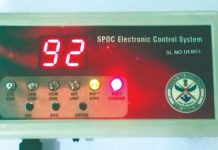Since the outbreak of novel coronavirus in the city of Wuhan in China almost a month back, Governments across the world have restricted travel to contain the spread of the pandemic. However, there are people who still have to travel because of unavoidable circumstances.
Japanese Man Detected With Coronavius Goes To Bar To Spread The Infection
The source of the coronavirus is not yet known, but it definitely is highly contagious and spreads from person to person through respiratory droplets when an infected person coughs or exhales.
It can also spread through contaminated surface. Coronavirus is more likely to spread if a person is in close proximity of an infected person for more than 10 minutes. So, what is the best way to travel and avoid the infection – Air, Train or Car?
Trains and Buses
So a lot of potential risk of infection on trains and buses depends on how crowded they are. In train routes that are more crowded and those people who travel through such busy routes are likely to catch the virus. Also, people who have to change routes or use multiple modes of transport to reach their destination are more vulnerable to contact the infection.
The spread of the virus will also depend on how well the mode of transportation is ventilated and the travelling time. Another important factor is how well and frequently cleaning and disinfestation is undertaken.
Chinese President Xi Jinping Arrives In Panic-Hit Wuhan To Reassure People
The more likely risk of catching the virus comes from touching the surface where the virus has been lingering for 48-72 hours such as the handrails. If you avoid touching the handrails, buttons, counters and so on, it is best if you do it with just one hand or wear gloves.
Railway systems across the world are closely monitoring the situation. They are ensuring that rail staff is kept aware of the latest advice to maintain good hygiene and keep surfaces clean, particularly in customer-facing locations. In fact in India, the Government is regularly sanitizing the Delhi metro and Mumbai’s local trains.
All catering staff has been mandated to wear hand gloves, a facemask, headgear, etc. while dealing with food production. Also, they have been advised to wash their hands frequently, avoid touching their eyes, nose and mouth, avoid contact with persons coughing or sneezing, change the hand gloves frequently and dispose them off in closed dustbins.
Can Iraq Acquire Russian S-400 Missiles With Looming Threats Of US Sanctions?
All the employees have been directed to wash their uniforms on a regular basis and asked to maintain proper cleanliness, use of disinfectant on frequently touched objects and surfaces such as door handles, POS machines, coffee machines, billing machine, countertop, freeze handles, tables, chairs, stall frames, etc. by using cleaning sprays like Dettol, Lizol, Collin.
Cars
A study back in 2018 found that car interiors had more bacteria than the inside of a dustbin lid. The car steering, gear, dashboard and handle, window buttons other car interiors carried more germs than a kitchen sink.
Antibacterial surface cleaning medicines like Dettol can kill all bacteria and viruses including coronavirus. So it’s important to clean the car thoroughly after every drive.
Are India, Afghanistan Using Pashtuns Against Pakistan? Expert Analysis
Taxi aggregator like Ola is providing its drivers hand-sanitisers and face masks and training them to maintain personal and cab hygiene. “If drivers notice customers displaying flu-like symptoms, they will immediately reach out to 24×7 Ola Care helpline,” Ola said in a statement on March 10. Uber is consulting an epidemiologist to help with its efforts, a company statement on March 16.
Planes
It’s a common belief that if you are travelling by plane you are more likely to get affected by some disease including Covid-19 since passengers breathe stale air in the plane. However, the air quality in the plane may well be better than in the average office and considerably better than the train.
There are more people per square foot in a plane which can increase the risk, but the air is also changed at a faster rate. A study on air quality in passenger vehicles estimates that the air on a plane is changed every 2-3 minutes compared with every 10-12 minutes in an air-conditioned building.
That’s because while you are on a plane, the air you breathe is being cleaned by something called a high-efficiency particulate air filter (Hepa). This system can capture smaller particles than ordinary air-conditioning systems, including some viruses.
Chinese President Xi Jinping Arrives In Panic-Hit Wuhan To Reassure People
The filter sucks in fresh air from outside and mixes it with the air already in the cabin, meaning that at any given time, half the air is always fresh. Many ordinary air-conditioning systems merely re-circulate the same air to save energy.
As well as breathing in droplets from someone coughing or sneezing, infections like coronavirus can be transmitted through touching contaminated surfaces with infectious droplets on them – whether that’s a person’s hand or a door handle.
Plane samples taken from surfaces on flights found nothing notable in them as compared with tests they undertook in buildings and other types of transport.
SU-35 vs MIG-35: Two Russian Jets Compete Against Each Other For Lucrative MMRCA Contract
On March 13, Ronojoy Dutta, CEO of India’s largest private airline, IndiGo, informed customers about plans to reduce the risks of Covid-19 in the company’s aircraft. “At every stage of your journey with IndiGo, we’re taking every measure possible to ensure compliance with the best advice from medical authorities and the government,” he said in a note.
On the same day, Vinay Dube, CEO of low-cost carrier GoAir, too, wrote a similar letter to customers. Airlines like Vistara and SpiceJet are also doing their bit. The airlines have intensified the cleaning of their respective aircraft and have instructed the staff to wear protective equipment like masks and gloves before boarding the plane, in order to prevent the virus.
However, even if the mode of transportation differs, it is best to follow the precautions –washing hands, cleaning surfaces and sneezing or coughing into a tissue.




